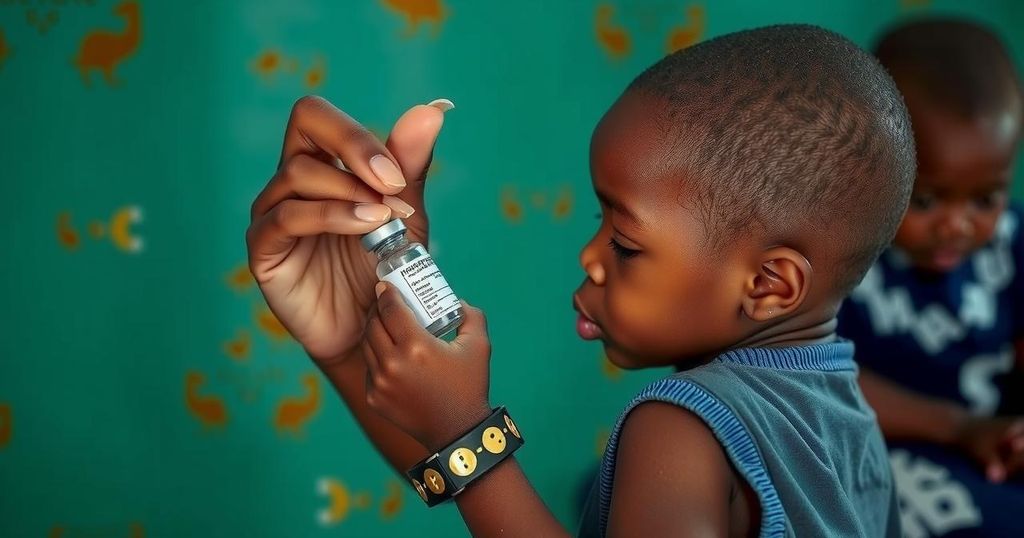Vaccinations against mpox have begun for adults in Congo, but children lack doses due to delayed negotiations over liability from vaccine side effects. Japan’s donation of three million doses of the LC16m8 vaccine, effective for children, is crucial amid rising cases. Experts call for improved systems to swiftly address such legal barriers.
Health authorities in the Democratic Republic of Congo recently commenced adult vaccinations against mpox, although children—the most vulnerable demographic—remain without access to doses. Japan’s commitment to donate three million doses of the LC16m8 vaccine, exclusively authorized for use in children, has been hindered by protracted negotiations over liability concerning potential vaccine side effects. Despite the resolution of these discussions, experts advocate for systemic reforms to prevent such legal barriers from obstructing critical public health responses in the future.
Mpox, a disease attributed to the poxvirus family, has disproportionately impacted children in Africa, contributing to the majority of over 1,100 suspected mpox-related deaths this year. The LC16m8 vaccine, developed for smallpox by KM Biologics and now identified as effective against mpox in children, represents a pivotal resource in combating this outbreak. Initiatives to secure vaccine availability have frequently been disrupted by complex international agreements, particularly regarding liability for adverse effects, as shown in this instance with Japan’s vaccine donation.
The delayed vaccine rollout for children in the Democratic Republic of Congo underscores significant systemic issues in international vaccine distribution and liability negotiations. While Japan’s commitment to provide the LC16m8 vaccine represents a critical step forward, the situation highlights the urgent need for improved frameworks to facilitate prompt and effective health interventions. Global health experts urge the establishment of robust compensation systems to mitigate concerns that restrain equitable access to essential vaccines.
Original Source: www.usnews.com






